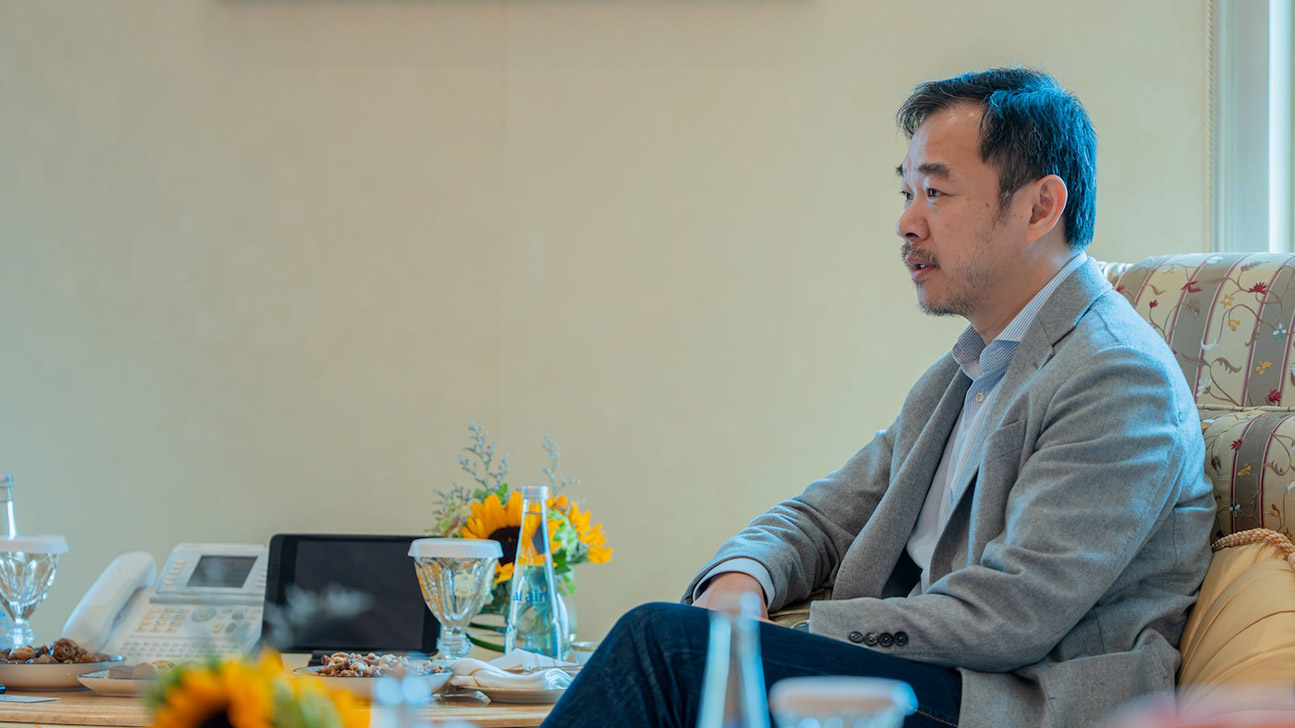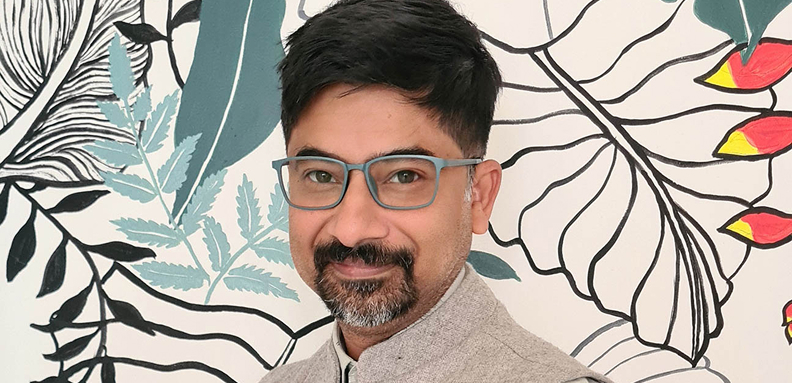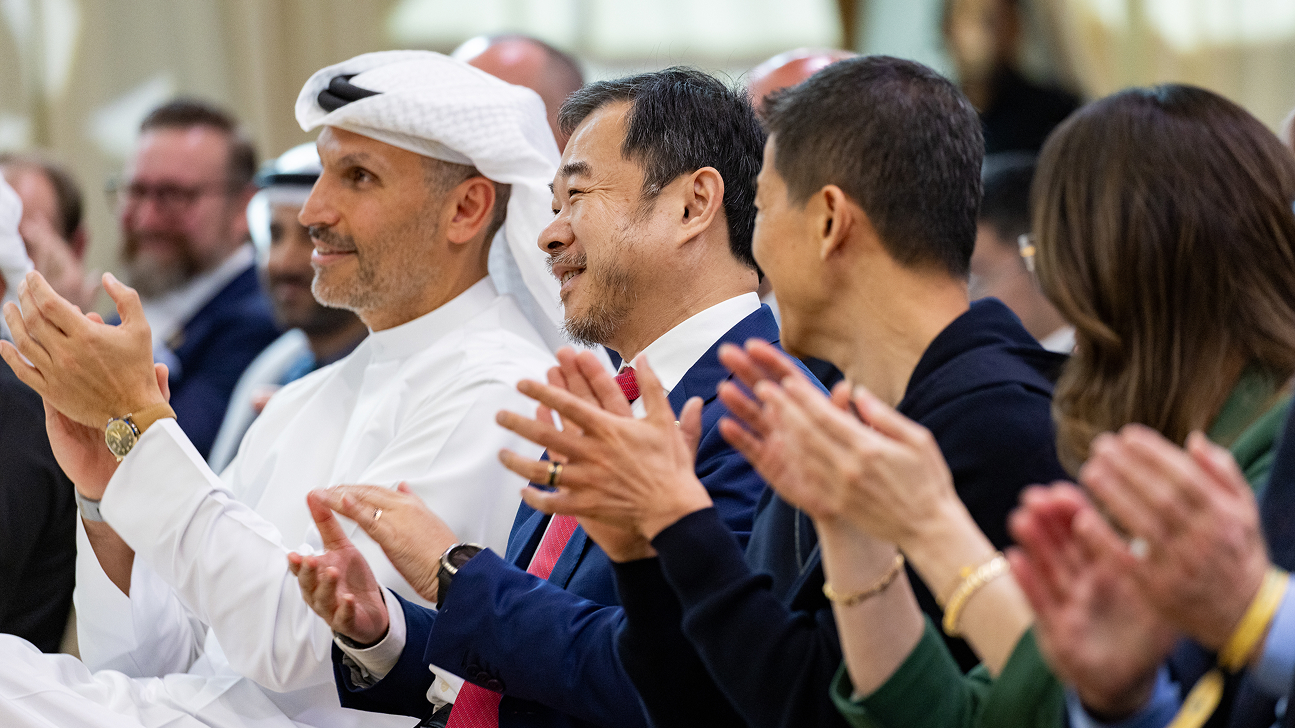Q&A with Eric Xing: global collaborations & ethical AI
Thursday, September 12, 2024

As president of MBZUAI and a Chinese-American computer scientist, Professor Eric Xing advocates for transparent and responsible global cooperation on artificial intelligence. He believes that leadership in transparent AI requires working with allies around the world.
We asked Professor Xing to comment on the university’s affiliations and relationships.
Q: How does the UAE, through MBZUAI, approach global collaboration in AI development while ensuring ethical standards and security?
A: The UAE’s strategy, exemplified by MBZUAI, offers a model for responsible global engagement in AI development. By creating a neutral, safe platform for collaboration, we can harness collective intelligence while maintaining rigorous security and ethical standards. The university champions the values and principles of the Western academic tradition as seen in the most advanced universities, and we hold faculty and students to the highest standards of conduct, transparency, and policy compliance.
Q: Can you comment on MBZUA’s stance regarding Chinese interests?
A: The United Arab Emirates has shown increasing emphasis in technological advancement and economic diversification in recent years. In 2017, it became one of the first countries to appoint a minister specifically for Artificial Intelligence, signalling the government’s focus on this field. The UAE views AI as a potential driver of economic growth beyond its traditional reliance on fossil fuels. It has also invested to support US developments in this field, recognising the important role it plays in shaping the future of AI.
MBZUAI, named after His Highness Sheikh Mohamed bin Zayed Al Nahyan, President of the UAE, was founded in 2019 by a UAE government decree, with the goal of advancing the country’s vision in AI. The idea that it’s an outcome of so-called Chinese influence completely ignores the UAE’s long-standing policy and strong alignment with the United States and undermines the reputation of the country.
At the invitation of the Board of Trustees, chaired by Dr. Sultan Al Jaber, and then-acting President Professor Sir Michael Brady from Oxford University, I accepted the role of the university’s first president in 2020. My mission was to help establish MBZUAI to be – a paradise for transformative research, a cradle for the best CS scientists and engineers and a hub for a start-up eco-system and high-tech innovation in MENA.
Since my appointment, the university has operated with full autonomy and freedom to conduct cutting-edge research and train the next generation of talent. Under the effective leadership of Chairman Dr. Sultan Al Jaber and with full sponsorship from the UAE government, I’ve had no engagement with the Chinese government or state enterprises on university policy, partnerships, or sponsorships during my tenure. If that weren’t the case, I wouldn’t have taken on this role.
Q: What are the potential risks or negative consequences on international research collaborations?
A: An atmosphere of suspicion could chill important international research partnerships and unfairly target individuals based on their ethnicity, educational history or national origin.
MBZUAI’s collaborations with companies like IBM, Meta, and US universities are conducted with full transparency and in compliance with all relevant regulations. The suggestion that these partnerships could compromise US national security interests is completely unfounded and fails to recognize the rigorous safeguards in place.
On the contrary, these collaborations serve as an important channel for sharing US culture and values, especially when rooted in academic research and education. They also help build strong relationships between the US and the UAE where we’ve received enthusiastic support from many US diplomats, government officials, and legislators for the work we are doing.
What we need is not paranoia, but a well-policed and secure arena for international collaboration. This means clear guidelines for research partnerships, robust safeguards against unauthorized technology transfer, and a culture of transparency and ethical conduct in AI research.
Q: How do you respond to concerns about MBZUAI’s connections to China, specifically through the faculty?
A: Many of the affiliations and co-appearances with people of Chinese background during our professional activities, as cited in research papers or advisory capacities—like mine or those of scholars from Oxford and MIT—are standard among top global academics. These do not imply foreign influence or improper technology transfer. The university, our faculty, and I have had normal academic engagements with global colleagues and institutions for decades.
Q: What role does the Board of Trustees play at MBZUAI?
A: Our board comprises global leaders from academia and industry. They are recognized figures in AI with numerous international affiliations and professional activities. Some serve as faculty at global universities. They help ensure that we live up to our mission.
Their MBZUAI work is part-time and generally one of many engagements, and due to strict conflict of interest policies, their connections with other organizations do not influence their roles as trustees at MBZUAI or present any risk of technology transfer.
Q: What access does MBZUAI have to chips banned for export to China?
A: The chips we own are procured through legal channels and in full compliance with US export controls. The access to these resources by our faculty, researchers and students is similar to that enjoyed by international students at US universities. Our projects are open-source, and we maintain rigorous controls over access to our facilities. Furthermore, none of our collaborations with US tech companies involve any form of improper technology transfer.
Q: Do you have US government funding supporting research you’re involved in?
A: I do receive US government funding for work I do in the US through my position as a professor at Carnegie Mellon University, not through my role at MBZUAI. This is an integral part of my professional duty at CMU and is expected for every faculty. My dual appointments are fully disclosed to the relevant institutions and funding agencies, which is standard practice for international scholars. There’s nothing either unusual or improper about this arrangement.
Q: You’ve received awards, including the “Zhongguancun Overseas Strategic Scientist.” Could you clarify what this award is?
A: Definitely. This award was a one-time honorary recognition that I received at a Silicon Valley event in 2017. It was co-sponsored with a California city government. It was a printed card, and it didn’t involve any compensation, travel, or any one-time or ongoing commitments. Several other prominent Chinese American scholars working at US universities such as Stanford, UC Berkeley, and MIT also received this recognition.
To imply that this recognition entails political or ideological obligations is a significant stretch. I’m proud to be a U.S. citizen and have built a long career at leading institutions across the country. My leadership at MBZUAI reflects my academic background and a strong commitment to U.S. academic standards, drawing inspiration from the longstanding tradition of Western scientific thought.
Related
UAE to deploy 8 exaflop supercomputer in India to strengthen local sovereign AI infrastructure
MBZUAI will partner with G42, Cerebras, and India’s Centre for Development of Advanced Computing to deliver the.....
- partnership ,
- collaboration ,
- summit ,
- sovereign ,
- supercomputer ,
MBZUAI report on AI for the global south launches at India AI Impact Summit
The report identifies 12 critical research questions to guide the next decade of inclusive and equitable AI.....
- Report ,
- social impact ,
- equitable ,
- global south ,
- AI4GS ,
- summit ,
- inclusion ,
MBZUAI marks five years of pioneering AI excellence with anniversary ceremony and weeklong celebrations
The celebrations were held under the theme “Pioneering Tomorrow: AI, Science and Humanity,” and featured events, lectures,.....
- celebration ,
- five year anniversary ,
- ceremony ,
- event ,
- board of trustees ,
- campus ,
- students ,
- faculty ,


